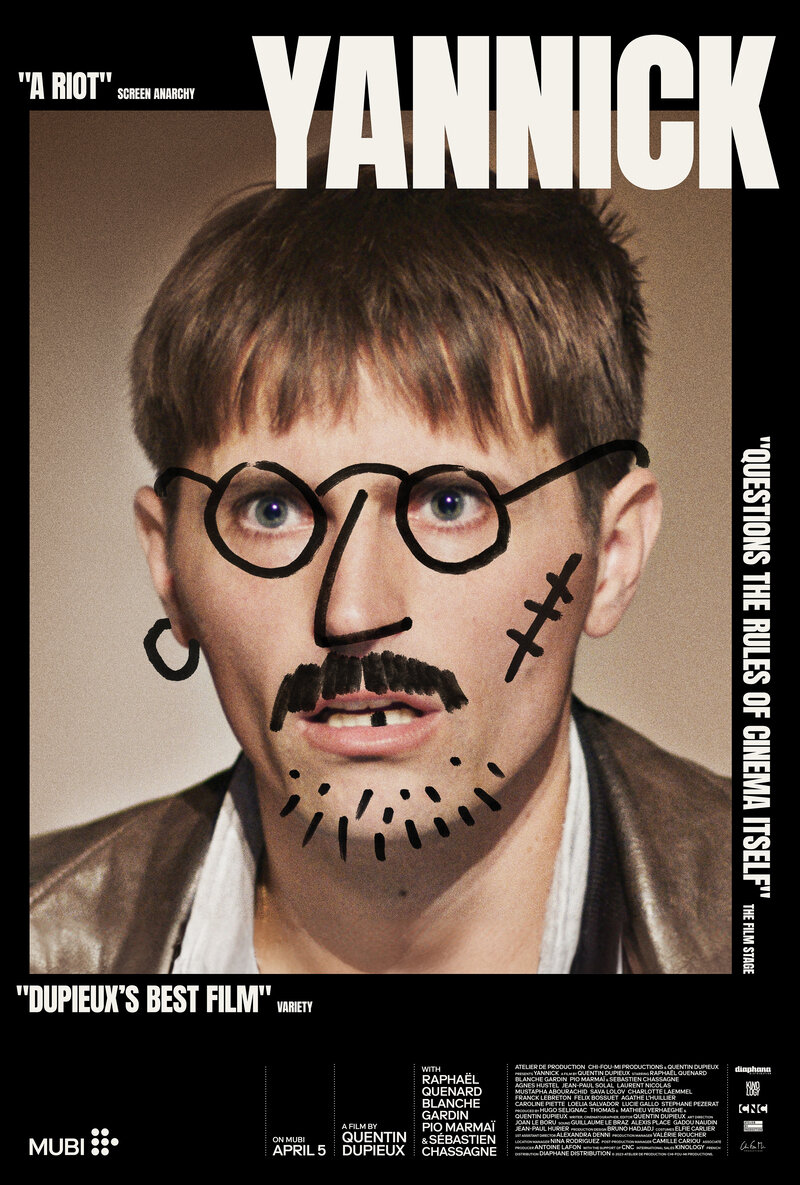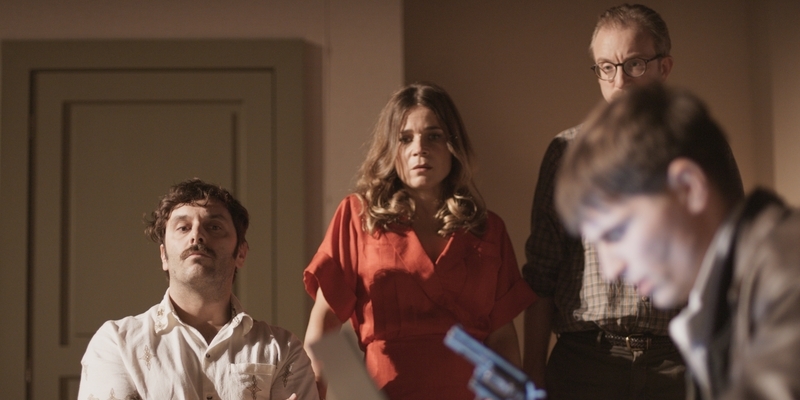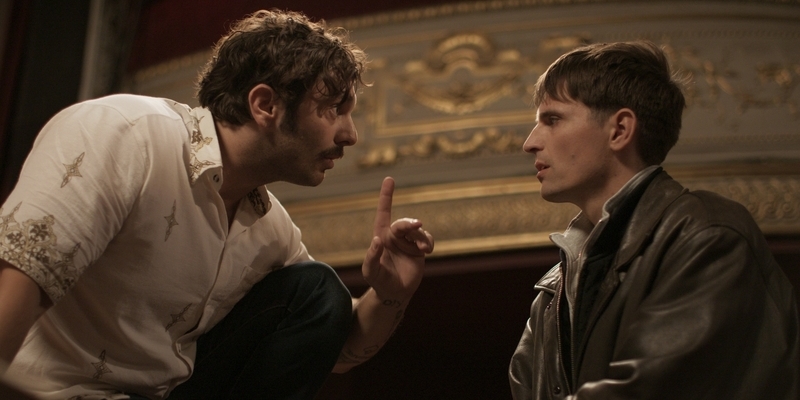
A stage production is hijacked by an audience member who claims he could
write a more entertaining play.
Review by
Eric Hillis
Directed by: Quentin Dupieux
Starring: Raphaël Quenard, Pio Marmaï, Blanche Gardin, Sébastien Chassagne, Agnès Hurstel

French writer/director Quentin Dupieux continues his prolific streak
with Yannick, which nobody was even aware of until a few weeks before its release in
French cinemas in August 2023. In the English speaking world it has skipped
cinemas to premiere on streaming service MUBI. At just over an hour in
length, Yannick probably belongs on a streaming service, lest
paying customers argue they aren't getting their money's worth.
That's exactly the complaint made by the film's titular
protagonist/antagonist, played by Raphaël Quenard. In the middle
of a Parisian performance of "Le Cocu", a mediocre comedy featuring three
actors sleepwalking through their roles to a disinterested audience, Yannick
stands up and interjects. Noting how he had to take a day off work and
commute for two hours to see the play, Yannick claims he isn't sufficiently
entertained. The actors and some audience members argue that art is
subjective, but Yannick isn't having any of it. He claims that he could
write a more entertaining play, and after being laughed at by the cast, he
pulls out a gun and demands a laptop and a printer, forcing the actors to
perform his impromptu creation to a literally captive audience.

Given its theme, it's ironic that Yannick is Dupieux's most
accessible film to date. While its premise is absurd in concept, it's easy
to imagine it occurring in real life, which isn't something you can
generally say about the crazy ideas Dupieux has conjured from his wild
imagination throughout his career. Log onto social media and you'll find a
legion of Yannicks, men (they're always men for some reason) who claim they
could do better than the latest offering from any given artist. It would be
easy to ridicule such people, especially so if you possess the wit of a
Dupieux, and I'm reminded of that time when Spurs manager Tim Sherwood
invited a heckling fan to take over his job for the remainder of the match,
which resulted in said fan being mocked by 40,000 people in the stadium and
millions more online.
It's surprising then that Dupieux is so benevolent towards Yannick. As the
film progresses, its sympathies begin to turn away from the actors, whom
Dupieux increasingly portrays as insecure and arguably as unstable as the
everyman holding them hostage, and towards Yannick, who begins to display a
level of charisma that exceeds those on the stage (greatly helped by an
oddly charming performance from rising star Quenard). Dupieux is the very
definition of a Marmite filmmaker - you're either on board with his
distinctive brand of absurdism or you're not - so it's not hard to imagine
that he's had his share of hecklers. But rather than simply use his
privileged position to belittle his detractors (like those celebs who gladly
set their millions of online followers after some random nobody on social
media), Dupieux explores the insecurity that dogs every self-aware artist.
"Wait," he seems to be asking, "Am I the asshole?"

There's a key moment that sees Yannick getting the audience on his side by
working them like Sammy Davis Jr at The Sands, which only exacerbates the
actors' insecurity. Any artist who creates something unique runs the risk of
alienating the general public, most of whom would prefer to settle for bland
familiarity (at time of writing, Godzilla X Kong is dominating
the box office). By pandering to the audience, Yannick turns them against
the actual talent in the room, the actors they originally paid to see. This
idea of making art obsolete by simply giving the public what they want has
been rapidly heightened with the rise of AI in recent times. The Yannicks of
the real world now look forward to the day when they can do without artists
and creators, when they can simply prompt a piece of software to give them
exactly what they want.
But Dupieux seems to suggest that perhaps artists and creators have played
a role in their own downfall, that maybe the work has gotten so banal that
it can be replicated by a piece of software or a deranged lunatic with a
gun. I don't see it applying to Dupieux's milieu of French arthouse cinema,
which has maintained a high standard throughout its history, but you'd have
to be deluded to argue that mainstream western entertainment is in a healthy
state. When it takes a small army of screenwriters to pen an unwatchable
superhero movie, maybe the boasts of the likes of Yannick hold some weight.
The impromptu sketch that Yannick knocks up is awful, but it's no worse than
the play he's upstaged.

With Yannick, Dupieux wrestles with the uncertain crossroads the entertainment industry
finds itself at. Is it more important to foster art or to entertain
audiences? If people prefer to eat microwaved chicken tenders than a well
prepared steak, are chefs irrelevant? Yannick gets to the
uncomfortable truth that an artist's second greatest enemy is their
audience. But Dupieux recognises that an artist's greatest enemy is their
own insecurity. Yannick tellingly ends on an ambiguous note
with the arrival of a heavily armed SWAT team. Who will be caught in the
ensuing crossfire? The artists? The audience? Both? I fear we'll receive an
answer in the near future.


